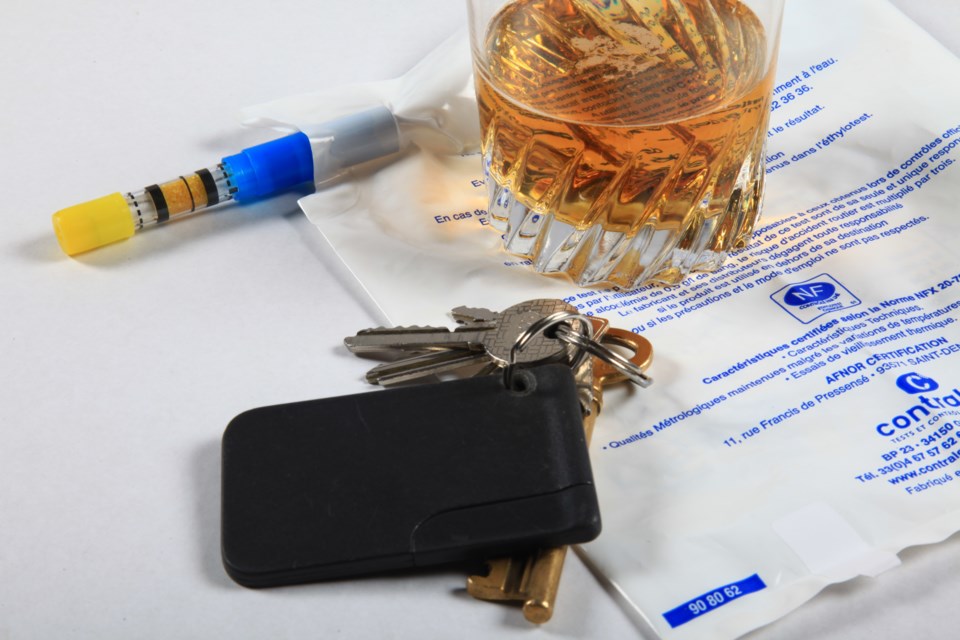A Manitoulin Island man has lost his legal fight to beat a drunk driving charge by claiming police administered the breathalyzer too quickly.
The man was arrested by the Ontario Provincial Police on Feb. 27, 2017, on Highway 140 in Gordon Township, as it headed toward Kagawong. The officer noticed he was speeding, turned his car around and had to accelerate to 150 km/h to catch up to the driver.
Because there were other vehicles on the highway, he had to slow down and then sped up to close to 120 km/h to catch the driver again.
When he finally pulled him over, the driver was very talkative, the court transcript says, and the officer could smell alcohol. Before administering the breathalyzer, he asked the driver if he had been drinking in the last 15 minutes.
It's a standard question because if someone had been drinking that recently, they could produce a false reading on the breathalyzer.
The driver “told him that he had nothing to drink therefore there was no concern,” the transcript says.
When searching inside the vehicle, the officer found seven partially consumed or empty beer cans, plus a canteen that smelled like rum.
“In cross-examination, (the OPP officer) agreed that the two-thirds full Carling beer can was within reach of the driver and was cold to the touch,” the transcript says. “This was the only alcohol container that was cold to the touch.”
The driver's lawyer, however, argued that police should have suspected he had been drinking within the last 15 minutes when they pulled him over.
“The defence argued that once the officer found this evidence, credible evidence, of recent drink, (the OPP constable's) belief in the reliability of the approved screening device was no longer reasonable and it should have caused him to question the approved screening device result and to do a further investigation,” the transcript says.
Since the breathalyzer results could have been unreliable, the defence argued the officer had no reasonable grounds to arrest his client, and that subsequent breath tests at police headquarters “must be excluded.”
In her decision, the judge in the case said legal precedent requires police officers to wait 15-20 minutes in cases where they have reason to believe a person had been drinking within minutes of being pulled over. Otherwise, they can't rely on the breathalyzer to determine whether to make an arrest.
“These cases hold that where the officer cannot eliminate the possibility of consumption of alcohol within 15 minutes prior to the administration of the test, the officer must wait up to 15 minutes before administering the test,” the judge wrote.
That puts police in a difficult decision, since they are also required to administer breathalyzer tests without unreasonable delay.
However in her ruling, the judge wrote the key factor in these cases isn't whether the officer should have known the suspect recently drank alcohol, but whether police have reasonable grounds to suspect the driver had been drinking before the breathalyzer is administered.
In this case, the OPP officer had several factors to rely on, including: the erratic driving; the high speeds; the fact the suspect was hanging out of the car window when police approached it; the difficulty the driver had in responding to requests; and the smell of alcohol from the driver.
“As mentioned, there were a multitude of other factors that supported the reliability of (the breathalyzer) result,” he judge wrote. “The defence submission that there were no other indicia of impairment apart from the (breathalyzer) is simply not accurate.”
And the OPP officer had no reason to believe the driver had been drinking within 15 minutes of the breathalyzer, since the cold, partially full beer can wasn't discovered until after the test had been given.
“The presence of this can of beer created nothing more than a possibility of recent drink – not credible evidence of recent drink,” she wrote.
Plus the police pursuit of the driver lasted 14 minutes, meaning there was little opportunity for the driver to have another drink.
